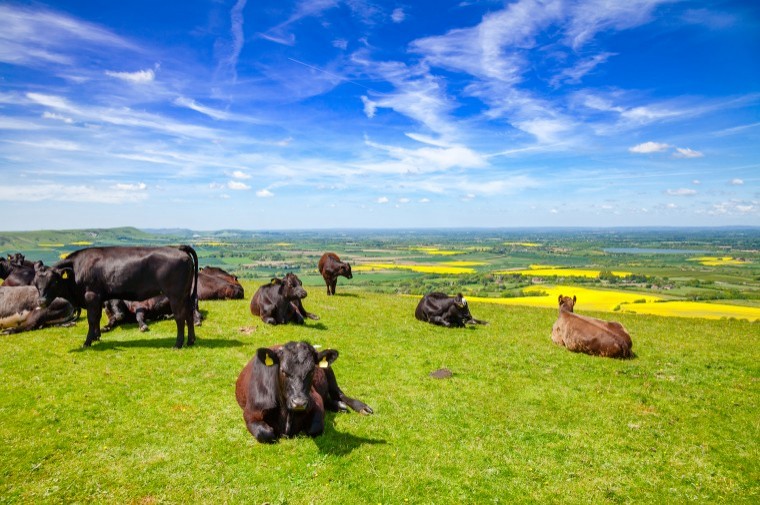“Farmers are quick to blame the badger for this,” said Mr Boers, one of two directors of The Livestock Partnership based in Petworth, West Sussex. “But the problem lies with the farming community more than they like to think.”
After years of only a few cases in West Sussex, the last few weeks and months have seen a flurry of cases, Mr Boers said. About 10 cattle farms across the county are now infected with bovine TB.
West Sussex is supposed to be a low risk for the disease, and Hampshire next door is meant to be an “edge area” buffer zone against bovine TB spreading from the West Country, a high risk area. Part of East Sussex is the only exception which has the disease in the low risk area east of Hampshire and West Sussex.
By spoligotyping – which is DNA finger printing the strains of bovine TB – it is possible to tell where the disease comes from. “DNA finger printing the recent cases has been pointing to the West Country as the source for West Sussex,” Mr Boers said.
He deals with a lot of dairy farms in West Sussex, and nearly all are closed herds which breed their own replacements. At this time of year, said Mr Boers, beef farmers and finishers need more animals to graze ground. They contact local dealers, who organise the transport of store cattle from the West Country markets at Salisbury, Exeter and Frome to be finished in West Sussex.
Those defending the trade argue that the animals leaving the West Country will have been compulsorily tested for TB. “But the test is only about 70% effective, so some animals are bound to get through.” In addition, infection could be spread in other ways – on the wheel arches of livestock lorries or on wellington boots, said Mr Boers.
The culprits can be counted on the fingers of one hand, added Mr Boers. “I cannot disclose their names because I have a professional code of conduct which does not let me reveal customers’ details.” He has approached the NFU and DEFRA vets to try to find a solution to the West Country trade. “But the vets say it is not the job of civil servants to make policy and the NFU says it does not want to hinder members’ trade. But the NFU can lobby politicians to stop this. The trouble is that the few doing the trade are threatening the livelihoods of many more.”
Eventually, said Mr Boers, bovine TB in West Sussex will spill over from cattle into badgers and deer. “Then we will not be able to get rid of it without a wildlife cull,” said Mr Boers. “But the badger is a protected species, so that is difficult.”
In recent years, the trend has been to educate farmers about the risks of bovine TB in the hope that this will help prevent the disease spreading. Mr Boers pointed to information freely available for farmers on the TB hub website. He added that the ibTB website showed how the disease was spreading through maps.
“Educating farmers has been tried for several years and we need to crank up the pressure a bit more.” The threat from West Country cattle was highlighted recently when TB restrictions on a West Sussex farm caused calves to be stocked at high densities because they could not be moved. As a result, said Mr Boers, there was a pneumonia outbreak. Cumbria now has bovine TB because farms there were restocked with cattle from the West Country after the huge 2001 foot and mouth outbreak. “In the end, only legislation can stop the movement of animals from the high risk areas such as the West Country to the low risk areas such as West Sussex,” said Mr Boers.
South East Farmer contacted DEFRA to ask why movement of cattle from high to low risk areas is still allowed and whether there are any plans to tighten or prevent these movements. DEFRA had not responded by the time we went to press. We also contacted the NFU, and a spokesman said: “No farmer wants to introduce disease onto his farm so biosecurity and responsible sourcing policies for introduced stock are important management tools.
“With particular regard to bovine TB, cattle moved from the high risk area to the edge and low risk areas are both pre and post movement tested for bTB to mitigate the risk as much as possible. There are farms in the high risk area that have never suffered a bTB breakdown so introducing a blanket ban on movements would have a disproportionate impact on the industry.
“The NFU has been supporting members in West Sussex with bTB issues for many years. We have organised numerous meetings and briefings to try to help members understand the risks associated with bTB spread.”




